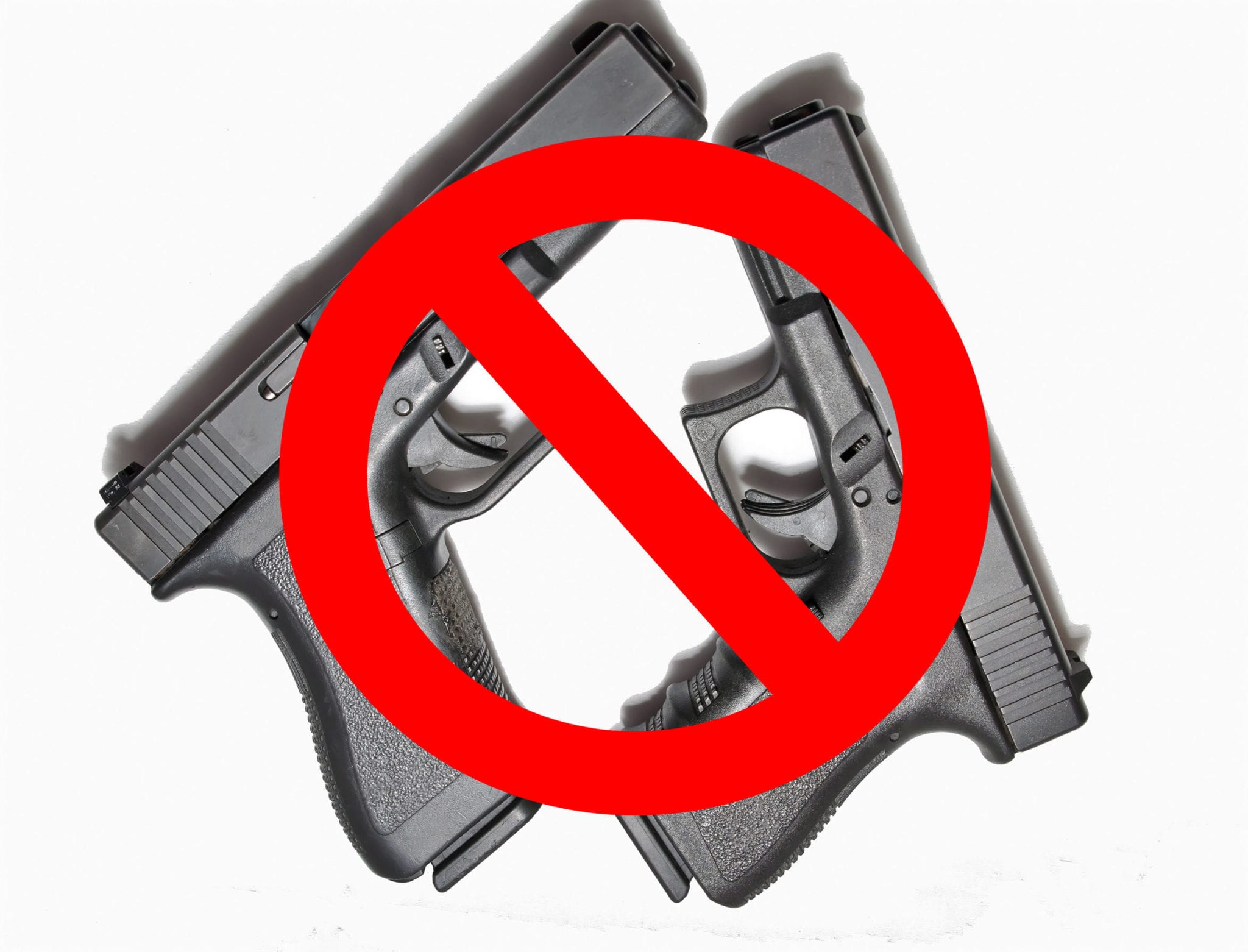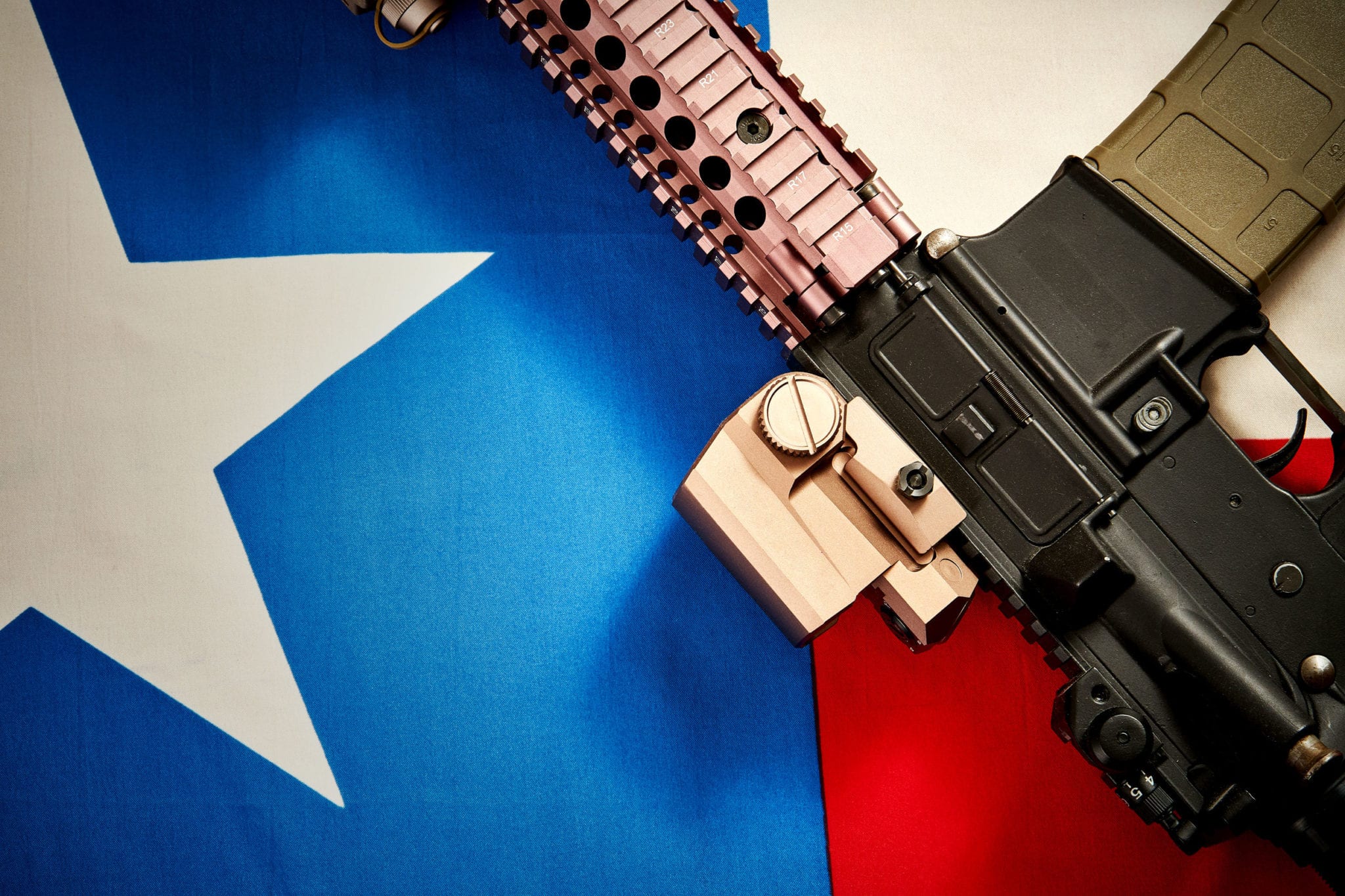The mass shootings in El Paso and Dayton which left at least 31 people dead reflect the escalating gun violence in the United States.
Although not related, the attacks appear to be racially motivated.
In the wake of this national tragedy, many Americans are calling for increased federal firearms restrictions.
So, what does this mean for gun owners?
Additional restrictions on firearms possession? What about overzealous policing? Will consequences for gun crimes increase?
In this post, we address the possibility of additional gun restrictions, provide a guide to existing federal firearm laws, and share the consequences one might expect if convicted of a weapons violation.
Can We Expect Increased Firearms Restrictions and Gun Crime Charges?
Shortly after mass shootings, President Trump issued a statement blaming hatred and mental illness for gun violence. He also highlighted efforts to crack down on guns. He claimed prosecution of federal gun crimes has dramatically increased in recent years.
The president stopped short of mentioning any specific legislation to increase restrictions on firearms or enhance the penalties for illegal firearm possession.
With an election year fast approaching, we may ultimately see new federal restrictions on firearm possession. In the immediate future, we suspect there will be increased policing efforts here in Texas to enforce existing gun laws.
Let’s take a look at the laws as they currently stand, and the consequences you could face if convicted of a violation.
Overview of Federal Gun Laws
At the federal level, firearms statutes focus on who can possess firearms, conduct while in possession of a firearm, and prohibited zones where firearms aren’t allowed. There are three primary pieces of federal legislation that regulate gun activity: The National Firearms Act, The Gun Control Act of 1968, and The Brady Act.
The National Firearms Act
This law was enacted in 1934 in response to the gangland murders and the weapons used to commit them. Key elements of the National Firearms Act are:
- Federal tax on the manufacture, sale, and transfer of certain types of firearms
- Restrictions on the sale and possession of short-barreled shotguns, machine guns, and silencers
The Gun Control Act of 1968
The Gun Control Act of 1968 revised the National Firearms Act and other statutes, updating and expanding on the restrictions of the prior acts. Key components of the Gun Control Act include:
- Federal license requirement on firearm manufacturers, importers, and retailers
- Requirement of licensees to maintain customer records
- Prohibited transfer of firearms to convicted felons
- Prohibitions on the importation of firearms with “no sporting purpose”
- Requirements that all guns be affixed with a serial number
The Brady Act
The Brady Handgun Violence Prevention Act, enacted in 1993, imposed one additional restriction and an exception:
- Five-Day Waiting Period. During this time, law enforcement is required to review the background of prospective handgun purchasers. This has since been replaced with an instant check and just a three-day waiting period if the results are not clear.
- Federal or State Authorization. Persons who have a federal firearms licence or state-issued permit are not subject to the waiting period.
Status-Related Federal Gun Charges
Many federal firearms charges are related to the status or history of the person in possession of the firearms. Status-related federal gun charges are frequently made against the following classes of people when a firearm is found in their possession:
- Convicted felons
- Fugitives from justice, who have an active warrant out for their arrest
- Undocumented immigrants
- Persons who illegally use controlled substances
- Persons adjudicated as mentally incapacitated
- Persons dishonorably discharged from any branch of the military
- Former U.S. citizens who have renounced citizenship
- Subjects of restraining orders for domestic violence offenses
- Persons convicted of domestic violence, even for misdemeanor-level offenses
- Those convicted are subject to 10 years in prison for unlawful possession of a firearm.
- Three or more violent felony convictions, plus a new conviction of unlawful possession of a firearm, and you could face a 15-year mandatory minimum.
Federal Firearms Charges Connection to Criminal Activity
Federal gun laws also criminalize the possession or use of firearms in furtherance of drug trafficking and other criminal activities. These charges are pressed in addition to charges for the criminal activity in question.
A conviction for possession of a firearm in furtherance of criminal activity triggers the following mandatory minimum sentences:
- Simple possession: Five years
- Displaying a firearm: Seven years
- Possession or display of a short-barreled shotgun, machine gun or silencer: 10 years
- Discharging a firearm: 10 years
- Second or more such offense: 25 years
The bottom line is in the current societal climate, it is wise to expect increased policing of gun crimes, and there is great potential for overzealous policing efforts. In turn, gun crime charges will likely increase, and innocent people may wind up facing charges.
If you’re a gun owner, don’t get caught up in the mix. If you do, though, fight back with aggressive criminal defense to beat the charges against you.






